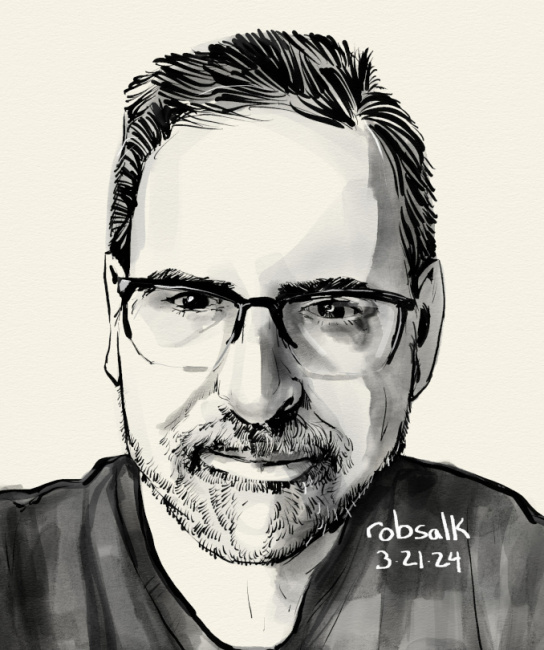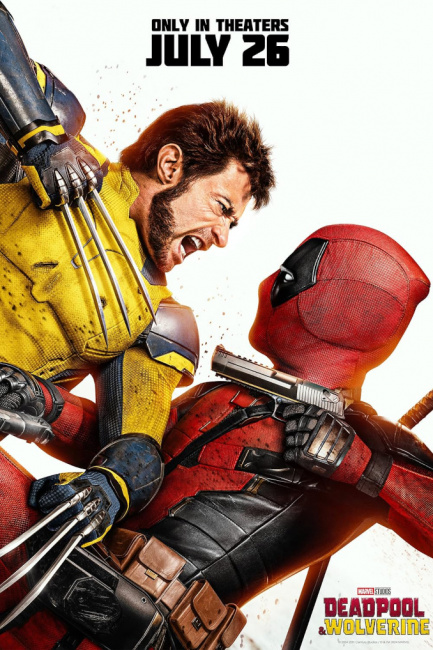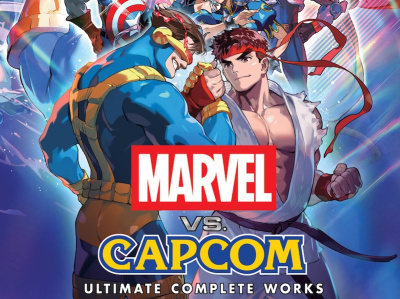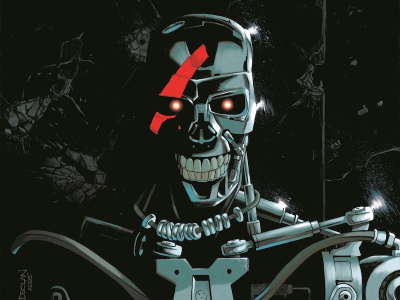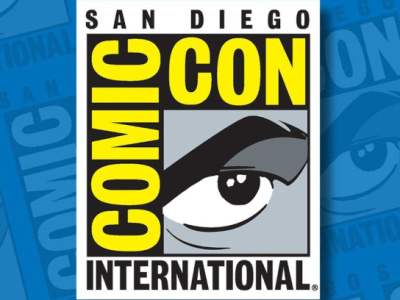A couple of weeks ago on his "Robservations" podcast, Rob Liefeld dished out the story of how he was slighted on the red carpet and denied access to the afterparty following the premiere of Deadpool and Wolverine last summer, and intimated he was only grudgingly invited to the premiere in the first place. This is one of the reasons he gave for turning down any future Marvel work, despite the warm commercial reception his recent return to Deadpool Team-Up has received.
Reaction to this within the comics community was varied, because, well, Rob Liefeld is not everyone's favorite creator. A lot of people think he got as much mileage out of his creative career as anyone could reasonably expect, so who is he to complain about this kind of slight?
But if you listen to the podcast, he's actually making a larger point about the role of comic creators in the media world. He's not the first one to make it, but he has one of the larger platforms, and whether you love him or hate him, on this matter he is 100% correct.
The squeaky wheel gets the shaft. Liefeld has long taken a paternal interest in Deadpool's media career, for obvious reasons. He and Fabian Nicieza received special thanks in the first film and creator credits the second, both produced by Fox. When it came to the Marvel Studios production Deadpool and Wolverine, he was curious to know where he stood.
According to the story he tells in the podcast, several weeks before the launch of the film, he sent off an email to Marvel that argued strongly that the creators of the underlying comic properties should, in general, receive higher billing and greater consideration in the promotion of films than they were currently, and wondered what Disney was planning to do for him given his willingness to be part of the promotional efforts. A bit cheeky, perhaps, but, as he says, you'll never get anything if you don't ask.
Apparently, this inquiry was unwelcome. And, weeks later, Liefeld and his family found themselves unwelcome at Marvel’s big Deadpool bash. Coincidence, I'm sure.
Liefeld, reasonably, decided that he knew where he wasn't wanted, so decided to move on to other projects. Considering his ability to move the sales needle even at this stage of his career, this feels like a loss for Marvel, for retailers and for his fans more than anything else.
Credit where it's due. Before letting us in on this story, Liefeld spends some time waxing nostalgic, as he often does on the podcast, about watching Superman: The Movie when it came out in 1978, and thrilling to seeing the names of Superman's co-creators Jerry Siegel and Joe Shuster fly by in the epic credit sequence ahead of screenwriter Mario Puzo and director Richard Donner.
Creator names. In big letters. At the start of the movie. Fancy that.
Contrast that to the way Marvel Studios has traditionally handled the matter, dropping any "thanks" or hard-won "created by" mentions of actual comic book people deep in the credit crawl, somewhere between the army of special effects people and the nice lady who makes sure there are fresh sandwiches on the craft services table.
Sure, there are cameos and easter eggs in many Marvel films. Liefeld got an extended callout during Deadpool and Wolverine's big fight sequence with his name on the "only feet" shoe store in the background. Others, notably Stan Lee, but also folks like Jim Starlin, got onscreen cameos in movies based on their work. And that's nice. But it's not acknowledgement by the corporation of the one thing that really matters: that all these billion dollar properties that make them and their shareholders rich were created by scruffy folks writing and drawing comic books for meager page rates.
Corporate IP owners hate to admit that, partly out of an excess of legal caution, but probably mostly out of wounded pride that their whole livelihood emerged from the tip of some random guy's pencil. And god help anyone who dares to remind them of that by asking for acknowledgement commensurate with their contribution.
That guy. Detractors will say, well, yeah, but come on, it's Rob Liefeld. If you don't know his relationship to Deadpool, he'll be happy to fill you in. You don't need Marvel Studios to tell you. And besides, few people in comics history have benefited more tangibly from the creation of a corporate character than he has.
There are also plenty of people who don't like his art style, who don't like the impact that he had on the industry, who don’t like the decisions he made or the deadlines he missed or the promises he broke. Liefeld plays the comics business like a full contact sport, and has committed a few fouls along the way. He's also lucky to have been in the right place at the right time with the right idea. He'll be the first to cop to all of that.
Those things can both be true and totally beside the point. The issue is not that he deserves respect because he's the mighty Rob Liefeld, or that he should be denied respect because he's made some enemies. It's that giving creators respect in media projects should not be optional. It shouldn't be contingent on the creator being everyone’s favorite person, or kissing ass by being a "team player."
Barring cases of personal conduct that shocks the sensibilities of audiences (like, say, allegedly sexually enslaving the nanny of your young child) that forces corporate IP owners to distance themselves from the creator, we the audience should normalize the expectation that media companies fully and prominently acknowledge the people whose imaginations created the underlying properties. Say their names.
Say their names whether it's Siegel and Shuster, Simon and Kirby, Eastman and Laird, Robert Kirkman or Rob Liefeld.
Say their names whether they had good lawyers or not, whether they got paid or not, whether they kept quiet or spoke up, whether they were nice folks or pains in the ass.
Say their names in big letters. Up front in the credits. Where they belong.
The big picture. If studios can't do that out of basic decency, maybe do it out of interest in the bottom line. After 35 movies and a dozen-plus streaming shows, the MCU cupboard is getting bare. The kid out there who’s creating the next Deadpool in his school notebook isn’t hearing this story thinking, "Hah, Liefeld got what was coming to him for being a presumptuous jerk!" He's probably thinking, "if that can happen to someone like Liefeld, it can happen to anyone."
And they'd be right.
The opinions expressed in this column are solely those of the writer, and do not necessarily reflect the views of the editorial staff of ICv2.com.
Rob Salkowitz (@robsalk) is the author of Comic-Con and the Business of Pop Culture and a two-time Eisner Award nominee.
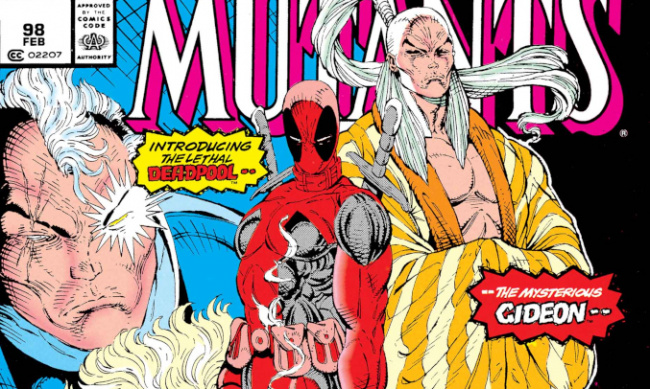
Column by Rob Salkowitz
Posted by Rob Salkowitz on February 18, 2025 @ 4:27 am CT
MORE COMICS
Marvel Art Books from Three Publishers
July 30, 2025
Three different publishers are offering Marvel-themed art books in coming months.
'Time Before Time' Co-Writers Reunite for New Series
July 30, 2025
McConville and Shalvey, who co-wrote the time-travel mystery Time Before Time, join forces for the next arc of The Terminator.
MORE COLUMNS
Column by Scott Thorne
July 28, 2025
This week, columnist Scott Thorne comments on the Edge of Eternities prerelease and on Magic: The Gathering news from the Hasbro earnings report.
Column by Rob Salkowitz
July 21, 2025
Columnist Rob Salkowitz lays out the Comic-Con panels of interest to industry professionals, current and aspiring creatives, educators, librarians and retailers.



